Robert Knox's Blog, page 17
November 2, 2018
The Garden of Verse: Three 'Occasional' Poems in November's Verse-Virtual
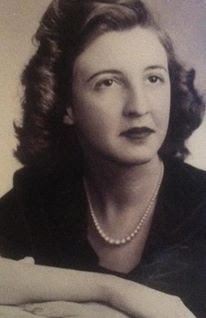 In the November issue of Verse-Virtual, the online poetry journal, up this week at http://www.verse-virtual.com/poems-and-articles.html
In the November issue of Verse-Virtual, the online poetry journal, up this week at http://www.verse-virtual.com/poems-and-articles.htmlI have three new poems that, one way or another, may fit the definition of "occasional" poetry.
Generally the term is used for poems written to celebrate, or mark, a major occasion. A wedding, birth, death, graduation, anniversary. The inauguration of a President. The observation of a milestone remembrance -- 50 years after the end of Second World War (though now we've closing in on 75). The hundredth anniversary of the famous Armistice that ended World War I.
The town of Plymouth, Mass. is planning elaborate observances for the 400th anniversary of the arrival of the Pilgrims in a new land and their establishment of a colony that helped create the new nation we who call ourselves 'Americans' are all part of.... as uncomfortable as that 'all' sometimes is.
The 'occasions' that provoked my poems are rather different.
The first, titled "The World According to Anne's Knee," is prompted by the (temporary, I'm really quite sure) changes in our lives brought about by my wife Anne's 'minor' knee surgery.
It includes these lines:
Look, knee, I'm not kidding
the time for tricking up is at an end
before the pain you've put us through
sends the whole joint 'round the bend
The second poem is a lamentation of a very lamentable event: the confirmation of critically flawed character to one of the country's most important leadership positions, Supreme Court Justice. 'Justice' has nothing to do with this appointment.
The poem is a rant. You can read it at:
http://www.verse-virtual.com/robert-knox-2018-november.html
The final poem is a wider look at a piece of history that marks important and also completely ordinary events in the life of some members of my family, namely my mother [pictured in photo above] and her older sister, my Aunt Muriel. It's titled "Bowing to the Ancestors" and commemorates the occasions documented in "Muriel's Photo Album," as I call it in the poem. The album is a real enough black and white record that begins in 1925 when my mother is almost five years old.
Here's a piece of it:
Jean, little, sitting on an overturned boat
in the sand at Long Beach
along with our mother, in black beach dress
'Guess Who' standing behind them, with favorite scarf head-wrapped and wind-swept
My lips look so big. I didn't think they were so big.
I was thin then. Alan not born until '37
Jean, still little, in clown suit and round glasses
Guess Who again, in dark beret for traveling, standing on the wharf
Eric looking straight at the camera seated in a deck chair.
He is very dignified
Another cruise.
You can real the whole poem and -- lots more by the rest of the journal's poets -- at http://www.verse-virtual.com/poems-and-articles.html
Published on November 02, 2018 19:19
October 30, 2018
The Garden of the Tale: 'The Ancient Ones Said They Were Ready Now'
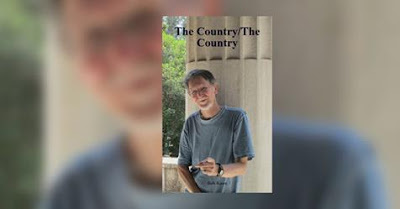
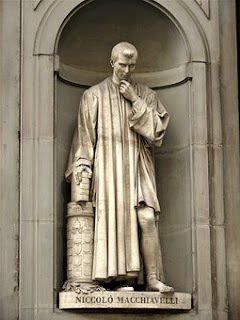 The electoral crisis in The Commonhope of UZ -- that fictional country much like our own -- draws to a head as my serial novel "The Country/The Country" moves toward a climax on the eve of the November 6 Congressional elections. Mr. Pig, the autocratic candidate who manipulates his country's creaky Voting system -- intimidating opposition voters and casting a mind-control spell over his own supporters -- orders his backers to march on the nation's Capital and install him as their new leader. In the darkness before dawn Citizen Keel broods on taking matters in his own hands in a wholly uncharacteristic act of violence. But in her hideout in the hills, opposition leader and seer Mrs. Nathan calls on ancient spirits for assistance and receives a message, from somewhere, concerning "a wall of flesh." See https://www.inkitt.com/stories/thriller/226757/chapters/43 Please Share.
The electoral crisis in The Commonhope of UZ -- that fictional country much like our own -- draws to a head as my serial novel "The Country/The Country" moves toward a climax on the eve of the November 6 Congressional elections. Mr. Pig, the autocratic candidate who manipulates his country's creaky Voting system -- intimidating opposition voters and casting a mind-control spell over his own supporters -- orders his backers to march on the nation's Capital and install him as their new leader. In the darkness before dawn Citizen Keel broods on taking matters in his own hands in a wholly uncharacteristic act of violence. But in her hideout in the hills, opposition leader and seer Mrs. Nathan calls on ancient spirits for assistance and receives a message, from somewhere, concerning "a wall of flesh." See https://www.inkitt.com/stories/thriller/226757/chapters/43 Please Share.We're in the final week of my serial novel "The Country/The Country," with postings scheduled for today, Friday, and Monday, Nov. 5 -- the day before the Congressional elections. I appreciate the support and words of encouragement I've received from numerous readers. Some of you took the time to write generous reviews and post them on the novel's online home. I thank you again for your attention and your kindness. Here's an excerpt from Chapter 45. We begin with the drama taking place in the thoughts of the seer Mrs Nathan:
The ancient ones said they were ready now. Nothing worked the way it used to, of course, when the world was young. The world had not been young for some time now. Still, it was there, going on anyoldwhichway. That was something. Some of the ancient ones were tired of being ancient. Renewal was the only answer, they argued. Build it anew. Time for 'a new.' New what? someone asked. Not up to us, the others demurred. Our job was to do a job we were set up to do. It's not to knock things over and start up everything from scratch all over again. Well whose job is it, then? Don't know. Probably something stronger, and younger. Like a comet, maybe Are comets young? Who knows? Maybe a hole 'nother yoo-niverse young. So what do we do, just wait around to be destroyed? Created? Destroyed? All that's beyond our understanding. It's not our business. We really don't know anything, do we? No, we don't. You're right. We don't even know what we look like. In order to do that you have to be someone else to do the looking. Now how can you be someone else and still be yourself? Can't. Be like stepping on your own feet. Swallowing your own tongue, another one said. Actually, people do that. No! Really? Gross!
It had been harder, harder than she remembered, to get their attention. Was that because she was older as well? But, hey, they were the ancient ones. They shouldn't have any problem with 'old.' Still, she argued (with herself), if you pursue something that isn't ready yet, you simply push it further away. You cannot grasp the ineffable with both hands and pull it from its hiding place. You only cause it to shrink away and hide deeper in the darkness, which is always there, which is spinning toward the dawn in its own good time. You have to wait. But it was hard to wait. Sometimes Mrs. Nathan found it hard as well merely to keep her eyes open. She did not wish to miss the call when, eventually, it came. It was hardest of all to remain powerless as the Leading Candidate moved toward what was clearly meant to be the Last Campaign. The minds of her followers, the workers and messengers of her hive, have supplied her with images enough to show her what was happening in the darker, scheming mind of the One Who Would Be Ruler. She saw, if darkly, the shadows of his intentions. How they loomed across the country. She saw the smokes and fires in those intentions. She saw the monuments rise to the new ruler. She saw the divisions darken between those who brought great bags of numbers to the tower of the ruler, and those whose fortunes were filled with holes. She saw the sands run through their fingers. Saw the tatters of their communities. Derelict factories, empty houses. Abandoned villages. The peoples who had not favored the new Ruler separated, willingly or not, from those who did, their opportunities shrinking. She saw masses of the disfavored 'others' cleansed from the land. Gathered into herds and driven from their homes toward the borders of other realms, smaller, less powerful countries that the Ruler forced to accept these deportees. Though these lands did not want them since they had people enough of their own. Still, they were driven. Fences pierced. Borders crossed. People herded, forced along by men in uniform bearing weapons. She saw the Permanent Campaign, leather-lunged followers cheering decorated representatives of ACE, Ass-kicking Community Enforcers, the ruler's favored arm of government. She saw other men, armed men, walking the streets of UZ's cities and towns with the slouching superiority of the conquerors. The New Force with its new uniforms of a dirty northern green, the boreal green of the cold, polar-tending places, patrolling the streets with automatic weapons. Given a wide berth by ordinary folk, the permanently occupied citizens of the Commonhope of UZ. New armies rise, restless for purpose, domination, spreading the gospel of strength. She saw the Festivals of Money. Grand, palatial interiors inside the transparent many-storied towers of the New Wealth, mirrored and chandeliered, fitted with ice sculptures and artificial waterfalls; with cascading gardens of hanging flowers made of vinyl, where snowfalls of paper currency floated down from the balconies to the laugh-choking, breathless hysteria of the costumed guests, wearing the gowns and uniforms of Long-Past Eras of wealth and ostentation: the bangles and boas, and feathers and cockades and robes, and caped splendors of the regal courts of ancient regimes... Saw them squealing and laughing and scurrying and squabbling among themselves to gather up huge handfuls of the carelessly dispossessed wealth of the nation.
https://www.inkitt.com/stories/thriller/226757/chapters/43 Please Share.
Published on October 30, 2018 09:36
October 29, 2018
The Garden of History: In America, Political Violence Comes from The Right, not from The Left
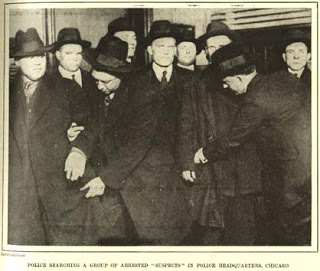 Terrorizing people for their political beliefs weakens the bonds that hold our society together. It doesn’t matter whether the bombs or the bullets come from the right or the left. The pathetic Trump-loving wacko who last week mailed what appear to be explosive devices — or dummy devices intended to intimidate — to prominent Democratic politicians and high-profile party supporters continues a tradition of abusing the US mail that goes back to desperate attacks on the corporate and government establishment by a radical band of desperate anarchists. One hundred years ago anarchist bombings sent shock waves through the American public, unsettled both powerful figures and the ordinary citizens, prompted heavy-handed, wide-ranging retaliations, and ultimately led to the wrongful convictions of Sacco and Vanzetti, those early 20th century martyrs to racial and political injustice. (Photo above: Federal agents round up immigrants in search for ‘dangerous bomb-throwing’ radicals.)
Terrorizing people for their political beliefs weakens the bonds that hold our society together. It doesn’t matter whether the bombs or the bullets come from the right or the left. The pathetic Trump-loving wacko who last week mailed what appear to be explosive devices — or dummy devices intended to intimidate — to prominent Democratic politicians and high-profile party supporters continues a tradition of abusing the US mail that goes back to desperate attacks on the corporate and government establishment by a radical band of desperate anarchists. One hundred years ago anarchist bombings sent shock waves through the American public, unsettled both powerful figures and the ordinary citizens, prompted heavy-handed, wide-ranging retaliations, and ultimately led to the wrongful convictions of Sacco and Vanzetti, those early 20th century martyrs to racial and political injustice. (Photo above: Federal agents round up immigrants in search for ‘dangerous bomb-throwing’ radicals.)
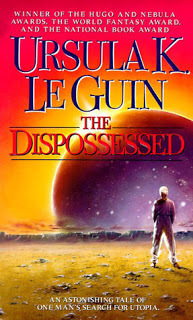 Last week a Florida resident apparently living in his van was charged with sending package bombs to at least a dozen prominent Democratic political figures and celebrities who have publicly criticized the current occupant of the White House. (The Boston Globe headlined its Oct. 27 story “Trump backer arrested over mail bombs.”) Letter bombs have a scary history in this country. The Unabomber specialized in them, targeting establishment figures in business and academia over two decades in the 80s and 90s in a misguided attempt to spark a ‘revolution’ against modern technology. His bombs killed three people and injured 23. Other extremists used the mail to send infectious disease germs or poisons to government figures or the entire US Congress after nine-eleven. But the wave of mailed explosives taking place in an earlier period of social upheaval almost exactly 100 years ago left a bigger scar on the national psyche. In April of 1919, a group calling itself “the Anarchist Fighters” used the US Postal Service to mail more than 30 bombs to politicians, a few judges, and prominent capitalists such as John D. Rockefeller. Neither a Rockefeller nor a high office holder opens their own mail, of course, and none of these handmade bombs reached or harmed their intended target. One of the bombs, unhappily, blew off the hands of a maid who was opening it in the home of a Georgia senator; the senator’s wife suffered minor injuries. Those were the only injuries sustained. Weaponry, bombs, and technology were far less advanced than they are today, and some of those bombs simply didn’t go off. Then the Postal Service quickly caught on to the scheme and intercepted 16 others before they reached their destinations. Weaponizing the mails to attack the American establishment was the tactic of an extreme left-wing group, whose ‘open war’ against the US government had its origins in the major social and economic consequences caused by the rapid industrialization of post-Civil War America. The profound change in American society from a nation of small farmers and artisans to an economy of replaceable-part factory workers led to the accumulation of great wealth in the hands of a few, increasing numbers of poorly paid and ill-treated workers, and a consequent sharpening of social divisions. A second major social shake-up in America’s social order followed a new wave of European immigration, even heavier than earlier migrations, that brought millions of people from Southern and Easter Europe to a country with a fast-growing economy. Jobs, however poorly paid, brought these immigrants to this country, just as contemporary America’s desperation-wage, low-end economy draws them from Central America and Third World countries today.Italians, Germans, Russians, Jews, Poles and nationals of other Old World lands (on top of a continued flow from Ireland and the British Isles), brought foreign cultures, religions, new political thinking, and social tensions to a nation of majority white Protestants and assorted under-classes. Among the new socio-political theories that diagnosed society’s ills and proposed a revolutionary solution was “anarchism” — the rejection of all established institutions — in its many flavors and national accents.In the late 19th century workers rights and anti-capitalist movements gained traction among immigrant groups, as they did also among many of the native poor and exploited. Big business, a powerful political force in the dominant Republican party, encouraged immigration to keep the labor pool large and wages low. If you didn’t wish to work for long hours under poor conditions for little more than bare subsistence wages, then the next desperate new arrival was ready to take your job. In response, economic and social philosophies such as Marxism that criticized the greed of ownership and the impoverishment of the working class took root. We’re familiar with these terms today — socialism, communism, anarchism — but they were new to Americans then.The battle ground where these ideas confronted the resistance of big money and the (still extant) alliance of big business and major political parties was the factory strike. Police and militia were commonly mobilized to ‘protect the property’ of owners against strikers, as bloody battles were fought on the picket lines. The use of explosives entered this industrial combat when somebody threw a bomb — though almost certainly not the anarchists who were scapegoated and later executed for this act — that killed a policeman during the infamous Haymarket strike in Chicago in 1886. The explosion touched off a riot that killed 11 people when police started firing at a crowd of demonstrators. Bombs shake a people’s trust in their society’s promise of normative civil peace. Civil society seeks a quick, dramatic response by authorities, the restoration of order, the punishment of the guilty. If the guilty are hard to find and criminality impossible to prove, people will settle for punishment exacted on those who ‘might have’ committed the crime, or were in sympathy with the crime, or merely shared the same general ideas as those they believe to be guilty. Or, at last resort, those who come from the same ethnic or ideological community as the people generally held to be disrupters of public order. Acts of political violence — regardless of who commits them — provoke worse violence to come. That’s the lesson of the infamous Haymarket trial, a lesson we are still failing to learn.The Haymarket bomb-thrower was probably pleased by the outcome of his crime: Eleven anarchists, including many who were not part of the demonstration where the explosion took place, were tried and hanged. Other examples of the cost of politically motivated violence abound. Another bomb, on another continent — this one planted by Serbian nationalists seeking independence from the Austro-Hungarian Empire — killed an Austrian royal and sparked World War I, the Western world’s first truly massive indulgence in self-destruction. When the United States entered the World War in 1917 to protect the finances of American banks that had loaned heavily to the Allies (England, France, Italy), the social costs of war came to this country, driving serious wedgesinto America’s communal bonds. People of German descent, a well-established and prosperous community, were treated as enemies and outcasts, some driven from their homes. An even more widely felt impact was the general repression of basic civil liberties, including freedom of speech, the press, and assembly, when Congress passed blatantly unconstitutional laws aimed at banning all criticism of America’s participation in the war and the institution of a draft. These laws and their broad-brush enforcement planted the roots of the federal government’s hysterical fixation on so-called ‘subversive’ left-wing ideologies and organizations, an obsession that haunts and hamstrings American civil society to this day.The government doubled down on repressing political criticism when it came from the mouths, presses, or rallies of new immigrants or the descendants of those ‘second wave’ communities: Italians, Russians, Jews, Poles, and other Eastern and Southern Europeans. Anarchists, with their frightening European reputation for assassinating heads of state, particularly ignited fears. The Serbian whose bomb ignited World War I was also an anarchist. An anarchist had killed a Russian czar; another assassinated the King of Italy. And an American President, William McKinley, was killed in 1901 by a young anarchist of Polish descent, Leon Czolgosz. And when new investigative bodies were invented by the federal government to stamp out wartime dissent, soon morphing into the FBI, the dissident group they feared and focused on most was a ‘small’ collection — the adjective that is practically redundant, since all anarchist networks are ‘small’ — of Italian speakers led by a fiery ‘maestro’ named Luigi Galleani. A prolific theorist and writer, Galleani earned his reputation as a near-martyr to state violence when he was shot in the eye by police on a picket line in New Jersey. He subsequently left the US for Canada, then slipped back across the border, and operated his printing press, producing an influential Italian-language periodical, from a small town in Vermont. His influence was strong among Italian radicals in New England. One of his most famous publications centered on a recipe for bomb-making. Scholars of the movement believe that Galleani’s notions of aggressively confronting government repression motivated members of the Boston-based anarchist gruppo to which shoemaker Nicolo Sacco and laborer Bartolomeo Vanzetti belonged. Given the later prominence of their case, many have argued that Sacco and Vanzetti were probable believers in Galleani’s justification for political violence. American law, however, makes a Constitutional distinction (as does English common law) between what you think and say and talk about with your intimates, and what you actually do. What Luigi Galleani told his followers after the United States entered World War I was that workers should not allow themselves to be drafted to fight a war that serves the interests of the bosses, not their own. Why should American workers fight German workers when the common enemy was the capitalists?Since wartime laws (a Patriots Act forerunner) made criticizing the draft a crime, Galleani was prosecuted for his acts of speech, convicted, and deported to Italy. Other trials and deportations followed. Emma Goldman, a Russian Jewish anarchist but also an A-list celebrity to the New York City press, was tried and deported. These government acts of repression and the creation of the FBI as a federal police force to investigate ‘subversives’ changed American history in fundamental ways that still hamstring political discourse on fundamental social and economic policies in this country today. Why is ours the only country in the developed world without an influential Socialist party? The only developed society without universal health care — demonized for generations as ‘socialist medicine’? The only country that refuses to restrict firearms possession in the interest of public safety? The suppression of anti-war dissent combined with the systematic dismantling of the ‘Galleani group’ of Italian anarchists and prosecution of its leaders ultimately led to the fear-filled domestic crisis America’s ruling class and anti-immigrant nativists in the general population were seeking to prevent. The survivors of the Galleani influenced gruppo, many of whom had left wartime America for Mexico or Canada, filtered back into the US when the war ended in 1918, and some nucleus of these reconstituted themselves as “the Anarchist Fighters.” Declaring that the American government’s repression had left them no course of peaceful resistance, they determined — as stated in the leaflets that accompanied their bombs — to reply to the aggression of their enemies with violence of their own. After their mailed bombs produced headline hysteria but did little harm to their enemies, they launched a second attack two months later, this time hand-delivering explosives to chosen targets. These explosives were targeted to government officials who had endorsed the laws that criminalized anarchist speech or assisted in the deportation of anarchist figures such as Galleani and Goldman.Eight bombs went off this time, the headliner being the explosion that destroyed much of the home of Attorney General A. Mitchell Palmer, whose office was in charge of the prosecutions of anarchists and other war protestors. Palmer and his family luckily escaped injury. A search through the wreckage for evidence came up with the likely identity of the bomber, who had accidentally blown himself up while planting the bomb. A young associate of Galleani by the name of Carlo Valdinoci, he was already being hunted by the FBI. They found his scalp in the wreckage. While the damage and injuries the anarchists’ bombs caused were slight, the enduring consequences proved severe for many radicals and workers’ organizations who agreed with the bombers’ critique of America’s money-dominated class system. The government’s response was a broad-based attack on those who openly supported strikes and unions, criticized the war, and believed the very rich should share their wealth with the workers who produced it. The heavy hand of repression also fell on immigrant groups whose only crime was making native-born Americans nervous. Acting on his own authority, but with widespread public support from a frightened and outraged American public whipped up the hysterical support of newspaper editors — who generally fostered a string-’em-up mentality — Palmer’s revenge cut a wide swath through immigrant communities, reasoning that these harbored the subversives. The so-called ‘Palmer Raids,’ marked by exaggerated threat-rhetoric, illegal searches and wholly extra-legal detentions, rounded up foreign-speaking men on ‘suspicion’ of violating the wartime espionage and sedition acts. Almost 4,000 people were detained without evidence for any charge — including hundreds kept on an island in Boston Harbor under inhuman conditions. Of these more than 500 aliens were deported, before federal judges stepped in and shut down these abuses of authority. The long shadow of the Anarchist Fighters’ futile war on the government not only fueled worse repressions, but led to the judicial lynching of two of their allies — Sacco and Vanzetti — who were accused of committing a crime no anarchist would stoop to: robbing the weekly pay of workers in a shoe factory in Braintree, Massachusetts. The two Italian anarchists fell afoul of a police stakeout of another anarchist’s hideout, and since they were admitted anarchists themselves they fit a local police chief’s preconception of the kind of people who would commit a daylight robbery and kill the paymaster and his guard. For the small-town police chief the equation was simple: anarchists equal criminals. Given the bombing campaign by the remnant of the Galleani movement, anybody who saw the newspaper headlines probably agreed with him. The few witnesses who claimed they recognized the two men as members of the criminal gang that committed the crime were both unreliable and highly coached. They were the people the police discovered they had ‘something on’ and could manipulate to their purpose. No substantial evidence connected Sacco and Vanzetti to this crime, but guilt by association did. The two were Italian anarchists, and an American-born jury thought any anarchists, particularly Italian ones, should pay for their kind’s attack on American institutions. While the Anarchist Fighters’ ‘war’ with against the government might have provided some satisfaction for its perpetrators, their turn to violence did no one any good. Workers and the poor gained nothing from it. Government police gained justification for bigger budgets, though their efforts neither apprehended the bombers nor made anyone safer. Constitutionally guaranteed civil liberties largely returned when the war hysteria was over. The survivors of the Galleani network went back to Italy, or otherwise ‘moved on.’ But the American government’s fixation on ‘subversion’ from the left also moved on to new targets. The FBI and right-wing Congressmen hunted for members or supporters of the Communist Party during the infamous “McCarthy period” and otherwise harassed and black-listed liberals who chose to back Marxist parties in the fight against fascism in Europe. Well after World War II, the FBI attempted to make anti-Communism and harassment of left-wing intellectuals a nationalistic religion. This obsession was followed by a blatantly racist infiltration, harassment, and entrapment of civil rights and Black nationalist organizations. Government police infamously tried to and frame and smear Martin Luther King,in defense of the segregationist status quo in the South. Today Trump backers warn against ‘left-wing mobs.’ Really? Where can I join up? The truth of the matter is that for three generations the real threats of political violence have come from right-wing haters rather than left-wing radicals. The bombing of the Oklahoma City federal building was the work of ‘anti-government’ fanatics. Many more people died in this single act than from all the actions of early 20th century anarchists.Racist anti-Civil Rights extremists murdered civil rights activists and blew up children in a Birmingham church. Somehow the FBI never managed to infiltrate these groups and prevent these killings. More recently a white racist seeking by his own testimony to start a race war killed innocent African-American worshipers in a South Carolina church. This is a list to which, unhappily, we can all probably think of more examples to add. Last week the demented Florida Trump-nut added to the list of right-wing hate crimes by sending ‘pipe bombs’ to prominent Democrats. We also learned from news sources that a report by a Department of Homeland Security team almost a decade ago warned against the growing threat of violence from right-wing extremists. Republicans, however, prevented its public release, arguing its conclusion reflected badly on conservatives. [See https://www.dailykos.com/stories/2018/10/27/1807737/-We-were-warned-but-Republicans-killed-the-messenger?utm_campaign=trending?detail=emaildkre] So much, apparently, for public safety. And last weekend a consumer of hate-speech on unabashedly hate-speaking, racist and anti-Semitic websites offered his own example of Violence from the Right. The consequence was the death of 11 Americans taking part in a religious ceremony in Pittsburgh. Yes, ordinary law-aiding Americans have reason to fear that politically motivated violence will mar the civil peace and safety that all societies must maintain and protect. Out history underlines this sad truth. But our government has always been looking in the wrong direction.
Last week a Florida resident apparently living in his van was charged with sending package bombs to at least a dozen prominent Democratic political figures and celebrities who have publicly criticized the current occupant of the White House. (The Boston Globe headlined its Oct. 27 story “Trump backer arrested over mail bombs.”) Letter bombs have a scary history in this country. The Unabomber specialized in them, targeting establishment figures in business and academia over two decades in the 80s and 90s in a misguided attempt to spark a ‘revolution’ against modern technology. His bombs killed three people and injured 23. Other extremists used the mail to send infectious disease germs or poisons to government figures or the entire US Congress after nine-eleven. But the wave of mailed explosives taking place in an earlier period of social upheaval almost exactly 100 years ago left a bigger scar on the national psyche. In April of 1919, a group calling itself “the Anarchist Fighters” used the US Postal Service to mail more than 30 bombs to politicians, a few judges, and prominent capitalists such as John D. Rockefeller. Neither a Rockefeller nor a high office holder opens their own mail, of course, and none of these handmade bombs reached or harmed their intended target. One of the bombs, unhappily, blew off the hands of a maid who was opening it in the home of a Georgia senator; the senator’s wife suffered minor injuries. Those were the only injuries sustained. Weaponry, bombs, and technology were far less advanced than they are today, and some of those bombs simply didn’t go off. Then the Postal Service quickly caught on to the scheme and intercepted 16 others before they reached their destinations. Weaponizing the mails to attack the American establishment was the tactic of an extreme left-wing group, whose ‘open war’ against the US government had its origins in the major social and economic consequences caused by the rapid industrialization of post-Civil War America. The profound change in American society from a nation of small farmers and artisans to an economy of replaceable-part factory workers led to the accumulation of great wealth in the hands of a few, increasing numbers of poorly paid and ill-treated workers, and a consequent sharpening of social divisions. A second major social shake-up in America’s social order followed a new wave of European immigration, even heavier than earlier migrations, that brought millions of people from Southern and Easter Europe to a country with a fast-growing economy. Jobs, however poorly paid, brought these immigrants to this country, just as contemporary America’s desperation-wage, low-end economy draws them from Central America and Third World countries today.Italians, Germans, Russians, Jews, Poles and nationals of other Old World lands (on top of a continued flow from Ireland and the British Isles), brought foreign cultures, religions, new political thinking, and social tensions to a nation of majority white Protestants and assorted under-classes. Among the new socio-political theories that diagnosed society’s ills and proposed a revolutionary solution was “anarchism” — the rejection of all established institutions — in its many flavors and national accents.In the late 19th century workers rights and anti-capitalist movements gained traction among immigrant groups, as they did also among many of the native poor and exploited. Big business, a powerful political force in the dominant Republican party, encouraged immigration to keep the labor pool large and wages low. If you didn’t wish to work for long hours under poor conditions for little more than bare subsistence wages, then the next desperate new arrival was ready to take your job. In response, economic and social philosophies such as Marxism that criticized the greed of ownership and the impoverishment of the working class took root. We’re familiar with these terms today — socialism, communism, anarchism — but they were new to Americans then.The battle ground where these ideas confronted the resistance of big money and the (still extant) alliance of big business and major political parties was the factory strike. Police and militia were commonly mobilized to ‘protect the property’ of owners against strikers, as bloody battles were fought on the picket lines. The use of explosives entered this industrial combat when somebody threw a bomb — though almost certainly not the anarchists who were scapegoated and later executed for this act — that killed a policeman during the infamous Haymarket strike in Chicago in 1886. The explosion touched off a riot that killed 11 people when police started firing at a crowd of demonstrators. Bombs shake a people’s trust in their society’s promise of normative civil peace. Civil society seeks a quick, dramatic response by authorities, the restoration of order, the punishment of the guilty. If the guilty are hard to find and criminality impossible to prove, people will settle for punishment exacted on those who ‘might have’ committed the crime, or were in sympathy with the crime, or merely shared the same general ideas as those they believe to be guilty. Or, at last resort, those who come from the same ethnic or ideological community as the people generally held to be disrupters of public order. Acts of political violence — regardless of who commits them — provoke worse violence to come. That’s the lesson of the infamous Haymarket trial, a lesson we are still failing to learn.The Haymarket bomb-thrower was probably pleased by the outcome of his crime: Eleven anarchists, including many who were not part of the demonstration where the explosion took place, were tried and hanged. Other examples of the cost of politically motivated violence abound. Another bomb, on another continent — this one planted by Serbian nationalists seeking independence from the Austro-Hungarian Empire — killed an Austrian royal and sparked World War I, the Western world’s first truly massive indulgence in self-destruction. When the United States entered the World War in 1917 to protect the finances of American banks that had loaned heavily to the Allies (England, France, Italy), the social costs of war came to this country, driving serious wedgesinto America’s communal bonds. People of German descent, a well-established and prosperous community, were treated as enemies and outcasts, some driven from their homes. An even more widely felt impact was the general repression of basic civil liberties, including freedom of speech, the press, and assembly, when Congress passed blatantly unconstitutional laws aimed at banning all criticism of America’s participation in the war and the institution of a draft. These laws and their broad-brush enforcement planted the roots of the federal government’s hysterical fixation on so-called ‘subversive’ left-wing ideologies and organizations, an obsession that haunts and hamstrings American civil society to this day.The government doubled down on repressing political criticism when it came from the mouths, presses, or rallies of new immigrants or the descendants of those ‘second wave’ communities: Italians, Russians, Jews, Poles, and other Eastern and Southern Europeans. Anarchists, with their frightening European reputation for assassinating heads of state, particularly ignited fears. The Serbian whose bomb ignited World War I was also an anarchist. An anarchist had killed a Russian czar; another assassinated the King of Italy. And an American President, William McKinley, was killed in 1901 by a young anarchist of Polish descent, Leon Czolgosz. And when new investigative bodies were invented by the federal government to stamp out wartime dissent, soon morphing into the FBI, the dissident group they feared and focused on most was a ‘small’ collection — the adjective that is practically redundant, since all anarchist networks are ‘small’ — of Italian speakers led by a fiery ‘maestro’ named Luigi Galleani. A prolific theorist and writer, Galleani earned his reputation as a near-martyr to state violence when he was shot in the eye by police on a picket line in New Jersey. He subsequently left the US for Canada, then slipped back across the border, and operated his printing press, producing an influential Italian-language periodical, from a small town in Vermont. His influence was strong among Italian radicals in New England. One of his most famous publications centered on a recipe for bomb-making. Scholars of the movement believe that Galleani’s notions of aggressively confronting government repression motivated members of the Boston-based anarchist gruppo to which shoemaker Nicolo Sacco and laborer Bartolomeo Vanzetti belonged. Given the later prominence of their case, many have argued that Sacco and Vanzetti were probable believers in Galleani’s justification for political violence. American law, however, makes a Constitutional distinction (as does English common law) between what you think and say and talk about with your intimates, and what you actually do. What Luigi Galleani told his followers after the United States entered World War I was that workers should not allow themselves to be drafted to fight a war that serves the interests of the bosses, not their own. Why should American workers fight German workers when the common enemy was the capitalists?Since wartime laws (a Patriots Act forerunner) made criticizing the draft a crime, Galleani was prosecuted for his acts of speech, convicted, and deported to Italy. Other trials and deportations followed. Emma Goldman, a Russian Jewish anarchist but also an A-list celebrity to the New York City press, was tried and deported. These government acts of repression and the creation of the FBI as a federal police force to investigate ‘subversives’ changed American history in fundamental ways that still hamstring political discourse on fundamental social and economic policies in this country today. Why is ours the only country in the developed world without an influential Socialist party? The only developed society without universal health care — demonized for generations as ‘socialist medicine’? The only country that refuses to restrict firearms possession in the interest of public safety? The suppression of anti-war dissent combined with the systematic dismantling of the ‘Galleani group’ of Italian anarchists and prosecution of its leaders ultimately led to the fear-filled domestic crisis America’s ruling class and anti-immigrant nativists in the general population were seeking to prevent. The survivors of the Galleani influenced gruppo, many of whom had left wartime America for Mexico or Canada, filtered back into the US when the war ended in 1918, and some nucleus of these reconstituted themselves as “the Anarchist Fighters.” Declaring that the American government’s repression had left them no course of peaceful resistance, they determined — as stated in the leaflets that accompanied their bombs — to reply to the aggression of their enemies with violence of their own. After their mailed bombs produced headline hysteria but did little harm to their enemies, they launched a second attack two months later, this time hand-delivering explosives to chosen targets. These explosives were targeted to government officials who had endorsed the laws that criminalized anarchist speech or assisted in the deportation of anarchist figures such as Galleani and Goldman.Eight bombs went off this time, the headliner being the explosion that destroyed much of the home of Attorney General A. Mitchell Palmer, whose office was in charge of the prosecutions of anarchists and other war protestors. Palmer and his family luckily escaped injury. A search through the wreckage for evidence came up with the likely identity of the bomber, who had accidentally blown himself up while planting the bomb. A young associate of Galleani by the name of Carlo Valdinoci, he was already being hunted by the FBI. They found his scalp in the wreckage. While the damage and injuries the anarchists’ bombs caused were slight, the enduring consequences proved severe for many radicals and workers’ organizations who agreed with the bombers’ critique of America’s money-dominated class system. The government’s response was a broad-based attack on those who openly supported strikes and unions, criticized the war, and believed the very rich should share their wealth with the workers who produced it. The heavy hand of repression also fell on immigrant groups whose only crime was making native-born Americans nervous. Acting on his own authority, but with widespread public support from a frightened and outraged American public whipped up the hysterical support of newspaper editors — who generally fostered a string-’em-up mentality — Palmer’s revenge cut a wide swath through immigrant communities, reasoning that these harbored the subversives. The so-called ‘Palmer Raids,’ marked by exaggerated threat-rhetoric, illegal searches and wholly extra-legal detentions, rounded up foreign-speaking men on ‘suspicion’ of violating the wartime espionage and sedition acts. Almost 4,000 people were detained without evidence for any charge — including hundreds kept on an island in Boston Harbor under inhuman conditions. Of these more than 500 aliens were deported, before federal judges stepped in and shut down these abuses of authority. The long shadow of the Anarchist Fighters’ futile war on the government not only fueled worse repressions, but led to the judicial lynching of two of their allies — Sacco and Vanzetti — who were accused of committing a crime no anarchist would stoop to: robbing the weekly pay of workers in a shoe factory in Braintree, Massachusetts. The two Italian anarchists fell afoul of a police stakeout of another anarchist’s hideout, and since they were admitted anarchists themselves they fit a local police chief’s preconception of the kind of people who would commit a daylight robbery and kill the paymaster and his guard. For the small-town police chief the equation was simple: anarchists equal criminals. Given the bombing campaign by the remnant of the Galleani movement, anybody who saw the newspaper headlines probably agreed with him. The few witnesses who claimed they recognized the two men as members of the criminal gang that committed the crime were both unreliable and highly coached. They were the people the police discovered they had ‘something on’ and could manipulate to their purpose. No substantial evidence connected Sacco and Vanzetti to this crime, but guilt by association did. The two were Italian anarchists, and an American-born jury thought any anarchists, particularly Italian ones, should pay for their kind’s attack on American institutions. While the Anarchist Fighters’ ‘war’ with against the government might have provided some satisfaction for its perpetrators, their turn to violence did no one any good. Workers and the poor gained nothing from it. Government police gained justification for bigger budgets, though their efforts neither apprehended the bombers nor made anyone safer. Constitutionally guaranteed civil liberties largely returned when the war hysteria was over. The survivors of the Galleani network went back to Italy, or otherwise ‘moved on.’ But the American government’s fixation on ‘subversion’ from the left also moved on to new targets. The FBI and right-wing Congressmen hunted for members or supporters of the Communist Party during the infamous “McCarthy period” and otherwise harassed and black-listed liberals who chose to back Marxist parties in the fight against fascism in Europe. Well after World War II, the FBI attempted to make anti-Communism and harassment of left-wing intellectuals a nationalistic religion. This obsession was followed by a blatantly racist infiltration, harassment, and entrapment of civil rights and Black nationalist organizations. Government police infamously tried to and frame and smear Martin Luther King,in defense of the segregationist status quo in the South. Today Trump backers warn against ‘left-wing mobs.’ Really? Where can I join up? The truth of the matter is that for three generations the real threats of political violence have come from right-wing haters rather than left-wing radicals. The bombing of the Oklahoma City federal building was the work of ‘anti-government’ fanatics. Many more people died in this single act than from all the actions of early 20th century anarchists.Racist anti-Civil Rights extremists murdered civil rights activists and blew up children in a Birmingham church. Somehow the FBI never managed to infiltrate these groups and prevent these killings. More recently a white racist seeking by his own testimony to start a race war killed innocent African-American worshipers in a South Carolina church. This is a list to which, unhappily, we can all probably think of more examples to add. Last week the demented Florida Trump-nut added to the list of right-wing hate crimes by sending ‘pipe bombs’ to prominent Democrats. We also learned from news sources that a report by a Department of Homeland Security team almost a decade ago warned against the growing threat of violence from right-wing extremists. Republicans, however, prevented its public release, arguing its conclusion reflected badly on conservatives. [See https://www.dailykos.com/stories/2018/10/27/1807737/-We-were-warned-but-Republicans-killed-the-messenger?utm_campaign=trending?detail=emaildkre] So much, apparently, for public safety. And last weekend a consumer of hate-speech on unabashedly hate-speaking, racist and anti-Semitic websites offered his own example of Violence from the Right. The consequence was the death of 11 Americans taking part in a religious ceremony in Pittsburgh. Yes, ordinary law-aiding Americans have reason to fear that politically motivated violence will mar the civil peace and safety that all societies must maintain and protect. Out history underlines this sad truth. But our government has always been looking in the wrong direction.
Published on October 29, 2018 21:46
October 24, 2018
The Garden of Verse: Going Down the Dark Staircase with Beauty and Style
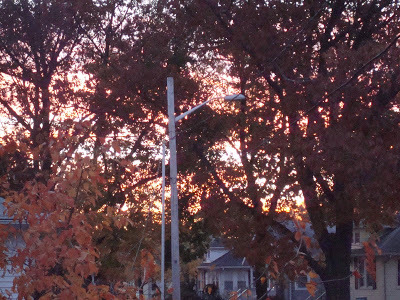
This is the time of year when all of us who live in the Northern Hemisphere are coping with our fast-dwindling sun season. The summery luxuries of green acres, fresh fruits and flowers, beach days and lingering evenings diminish day by day. Shorter days. Cooler days. The certitude of more and more darkness until the sun tips back in our direction.
It's no surprise, then, that themes both seasonal and enduring take us down the dark stairway in the October issue of Verse-Virtual, the online poetry journal found at http://www.verse-virtual.com/. In "Departed," Joan Colby's gut-check poem on the misery of those who seek refuge by crossing America's southern border, the poet tells us: "The wind is harsh, it separates
The final leaf from the limb
And sweeps over the unforgiving acres
Where refugees move onward..." We can't read this poem without being reminded that 'departed' means both to leave a point on earth and to leave earth altogether. And without thinking of the ways (though the poem does not say this) our government's policies add to the number of refugees who die in the desert for the 'crime' of border crossing.
Who these days remembers atrocities involved in crushing the Attica prison uprising, now decades ago? Its impact lasts, helping to establish the American policy presumption that 'prisoners' are not entitled to any right -- including, apparently, the 'right to life.' Sylvia Cavanaugh's "A Prayer for the Prisoners of the Attica Uprising" ends with a call for recognition of "the humanity of prisoners" with this striking image: "Like indigo buntings,
those black birds of Spring,
who fasten the sky to their backs
and hoist it down to earth"
Autumn's shorter days and longer nights make sky and sun even more important. In Barbara Crooker's "LUX PERPETUA," a poem dedicated to a recently departed friend, the poet tells us, "The sky is still heartache blue, but November
is coming, with its afghan of gray, threaded by geese,
everything gone to seed." 'Heartache blue' is exactly the right encomium for autumn skies, whose contemplation helps us appreciate life's good gifts and the company of those we love. And an 'afghan' sky "threaded by geese" is simply a sublime image.
In 'times like these' (a phrase for which we probably all have our own meaning) it's no wonder that we turn to the consolations of the natural world, eternal truths, perfect moments. In a poem whose title is a poem in itself -- "IN WHICH A TOTAL ECLIPSE OF THE MOON IS
ECLIPSED BY CLOUDS AND A WHITE-TAILED
DEER BOUNDS OFF INTO THE WOODS" -- John Morgan offers us a beautifully nuanced happy-sad-ironical lyric that attests to the impossibility on holding on to a perfect moment: "...but when you returned to the spot
it was not the same: it was yourself
in whom that rich and tragic place
called up the need to back away and stare
on emptiness, dusky, elusive,
and somehow hostile to the whole you sought,
a whole which continued to vanish
as you crept up lasso in hand." Got it. Been there (I think). Next time leave the lasso home. The poem maintains this richly enjoyable tone, while leading us back to that disappearing white-tailed deer.
Donna Hilbert's poem "Teaching the Fish to Let Go," begins with a depiction of a fisherman casting flies -- an evocation of another of nature's lasting balms -- but soon dives into the depths. "Susan calls," the poem tells us, "we talk/ about death." We learn of a hospital stay that ends with the diagnosis: "you didn't swallow enough."
Then we go back to the fisherman and are treated to an apt and wholly unexpected hook-up between these two very different themes. As the wry title indicates, it's about letting go. In Michael Minassian's memory poem, "FINGER PAINT AND BARE FEET," family gatherings in which all the kids are put to bed in one room are evoked by these lovely, homely images: "sleep and dreams
torn off like windows
of gauze and drifting clouds—
washed away in the rain"
And as Tom Montag notes in his poem "The Poet" we're... "Often at the edge of something
you can't quite touch." Like so many of Tom's poems, this one goes right to that edge.
Even if you can't hold on to the perfect moment, or control it with a "touch," there is consolation in knowing that nature's sublime offerings do keep coming. Penelope Moffat summons one beautifully in "It’s Only Dawn":"Soon the sun will ride
high overhead,
soon the air will blue,
mirroring the lake below,
soon heat will rise without
a hint of smoke."
Kate Sontag writes "Summer Song" in the form known as "pantoum" -- whose rules for patterning and repetition I can't begin to describe -- leading to praise-song stanzas like this:
"I want everyone I love to live forever and feast
Singing Lobsters, crabs, mussels, chanterelles
Old Sadie dog swims in saltwater but refuses to eat
David bakes a golden loaf of cattail pollen bread" Just as the title promises, the poem truly is a song, sounding to me like a "round" to be sung outdoors beneath a setting sun, or perhaps for that giant campfire at the end of the world.
Or, if melancholy lingers still, then take the advice of the fictional comedian invented by Robert Wexelblatt's poem "The Comedian":"Imagine, he said, a horseradish layer cake.
It took some time to conjure that up, then
a little more to get the point, nearly.
We guessed he meant you can make something
sweet out of what’s bitter, or that looks sweet,
or that the best jokes tend to bite back." That great last line contains a whole theory of humor.
Finally, one of my own favorite sources of solace for the inevitable passing of summer: the late-season lovesong of the cricket. Marilyn Taylor's "Crickets: a Late Chorale" is a rhetorical whole in five metered stanzas. The poem offers elegantly descriptive stanzas on the cricket's annual performance, followed by analysis of our response: "Repetitive cacophony
becomes the leitmotif—
they know their time to reproduce
is growing brief. And we who listen will do one
of several likely things:
deny the deviousness of time,
or fold our wings"
Don't fold your wings this month, folks, until you've read these and the many other fine poems in the October 2018 issue. http://www.verse-virtual.com/poems-and-articles.html
Published on October 24, 2018 11:17
October 22, 2018
The Garden of the Tale: The Spy in the House of Pig -- "Is It better to Be Loved or Feared?"
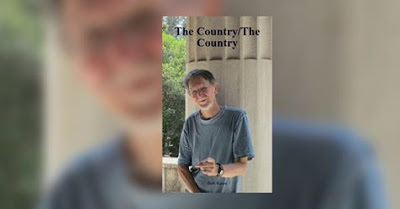
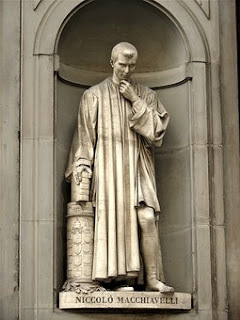
A would-be tyrant manipulates an election to take over a country much like our own in my serial novel, "The Country/The Country." Based on the catastrophically divisive election of 2016, the story pits the campaign of the autocratic Mr. Pig against a citizen opposition led by the seer Mrs. Nathan, who calls herself a witch.
In the segment posted today, the Leading Candidate Karol Pegasso in the vote for a new Chief Xec of The Commonhope of UZ (that country much like our own) seeks an answer to an age-old question posed by the great Renaissance political theorist Niccolo Machiavelli: "Is it better for the ruler to be loved or feared?" He poses this question to the novel's protagonist, citizen Keel, a retired professor who taught "the old books," and whom Pig has kidnapped to use as a sounding board for his strongly autocratic views.
Keel pleases him with his reply: "It's a question of tactics."
Meanwhile the leader of the opposition, the elderly seer Mrs. Nathan, rests up in her mountain hideout, calling on the Ancient Ones to help plot her next move. And the country's august Constitutional body, known as the Sacred Commission, finally sensing that their country's revered but complex electoral system has been manipulated and subverted by the tactics of the Pig campaign, calls a halt to the Voting to investigate claims of voter intimidation. In response, Pig vows to take matters into his own hands.
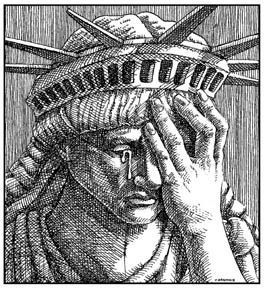
Here's the link: https://www.inkitt.com/stories/thriller/226757/chapters/37 Click on "Chapters" to go back to the beginning or pick up where you left off. New segments posted every week
And here's an excerpt from chapter 37:
"So, yeah," Pig said, "my men come into town and they shake things up. They stir the pot. The ground moves under the feet of all these sleepers. They are thrown out of their cozy beds, knocked off their feet." He stared at his companion, or opponent, in dialogue; who made no reply "And, yeah, a few people get hurt. Well, a few must be sacrificed, for the good of the many. Yes, there is fear, there are rumblings, rumors, stories are passed. Some egos get bruised. Some dirty secrets spilled. The little sins of men -- and a few 'careless' women, let us say -- are exposed.... It is a cleansing. It's all part of a necessary renewal. This is a new age, man." Pig looks darkly about him. No one is cheering, by then the only voice within hearing is not objecting either. His expression lightens as he focuses on the un-objecting Keel. "The new air rushes in. It's my breath, Keel, you're feeling on the back of your neck. The fresh air of a new day. Don't you taste it, smell it? Feel it?" Keel had no wish to feel the breath of the Pig anywhere on his person, but he has determined not to get into a rhetorical contest, or mere mud-slinging. Moderation is not exciting. Who wishes to defend sleepers? To accept this battleground is already to be defeated. Instead, he summarized. "So what you are saying, if I understand correctly, is that citizens of this country no longer have a choice to make. A change must be made, and it will come whether they wish it or not. A necessary change." He spoke slowly. "That will benefit all in the end. That will save them from decline." Pig grunted, softly. Less in satisfaction, it appeared, than in cautious attention. "And so," Keel resumed, "if we are pursuing the question of how the leader, the new leader, should address the populace of the Commonhope of UZ... Whether, that is -- as you first put the matter -- he should seek to be loved or feared, then the goal is no longer appealing for their consent. Consent, in our traditional form of government, comes through a vote. But what you are seeking is acceptance. Acceptance --" he hesitated for a word -- "of a regime. A new regime. You wish to win the people's acceptance, if not their approval, for the new directions you believe are necessary. Their obedience, we might say. A ruler must be obeyed, as Mac-Vey would say. A regime must be accepted. Or else things, the ordinary daily life of a civil society, the polis, will not run smoothly." He stopped speaking, to take in the face of the Leading Candidate. "So it's a question of tactics, then, isn't it?" Pig's throat made a grumbling noise. And then he laughed. "This is why I like you, Keel."
https://www.inkitt.com/stories/thriller/226757/chapters/37
A would-be tyrant manipulates an election to take over a country much like our own in my serial novel, "The Country/The Country." Based on the catastrophic election of 2016, the story pits the campaign of the autocratic Mr. Pig against a citizen opposition led by the seer Mrs. Nathan, who calls herself a witch
Published on October 22, 2018 12:42
October 20, 2018
The Garden of the Seasons: Dispatches From Octoberland

Leaves pile up around the chairs on the veranda, like rain filling a ship, a vessel. Our lives are a vessel filling up with leaves, and light, and shadow. In the distance is noise, and mountains,
 the crows call in, with a regularity of their own choosing. October in the happy land of small mountains, domesticated to appearances, reachable by amateurs. And, for a while each day, the sun shines like a revelation What have done to deserve this?
the crows call in, with a regularity of their own choosing. October in the happy land of small mountains, domesticated to appearances, reachable by amateurs. And, for a while each day, the sun shines like a revelation What have done to deserve this?
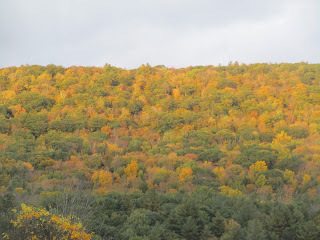 The lady gardener wears a wide Asian farmer's hat. Even though at home I putter in similar fashion, here the earth entire is a garden as if earth were continually at play. The hills bloom yellowing configurations.
The lady gardener wears a wide Asian farmer's hat. Even though at home I putter in similar fashion, here the earth entire is a garden as if earth were continually at play. The hills bloom yellowing configurations.

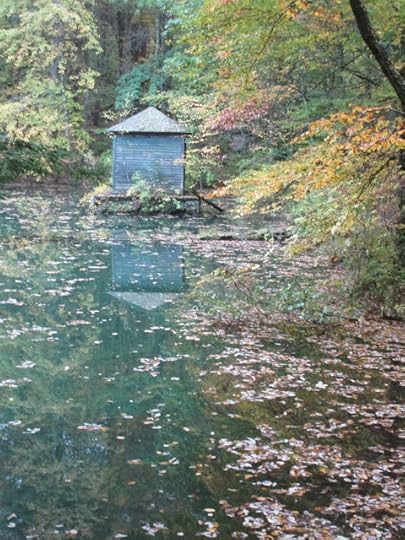 Leaves spotted brown from the endless rain, water stained,
Leaves spotted brown from the endless rain, water stained,as if mapping the spread of some looming disaster, look rusty up close. But no one is unhappy here. It’s simply not allowed. And nobody would notice if you were.
The silence of the golden world fills with distant geese, Internal prompts of the changes, last turns of the wheel That eventually point to the west The evening land, in which We find, as always, Green mountains, golden sands
2. Hermit on the Pond I can't think who else would live here. Yet I am envious.The stylish pointy roof
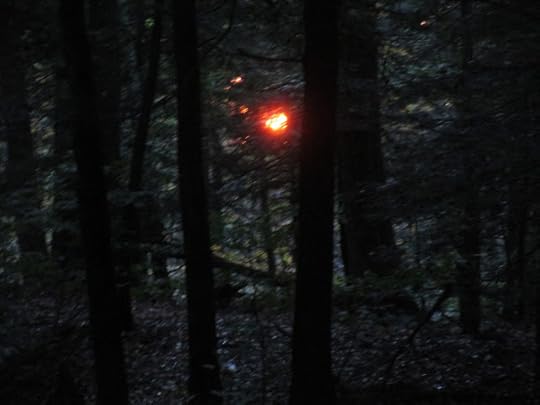 like a chimney cap, ora man hoeing in a field. Instead of a lawn, a world of reflections on which float fragments of your neighbors.When they prepare for the coldby turning colors(for your delight) and then, the philosophic gesture, shedding their extremities, what will you shed when those trees give up color and withdraw into themselves waiting for a propitious moment to do it all again?Will you wait as well? How unnecessary that the owner's sign says, "Danger.""Do Not Enter Herein."
like a chimney cap, ora man hoeing in a field. Instead of a lawn, a world of reflections on which float fragments of your neighbors.When they prepare for the coldby turning colors(for your delight) and then, the philosophic gesture, shedding their extremities, what will you shed when those trees give up color and withdraw into themselves waiting for a propitious moment to do it all again?Will you wait as well? How unnecessary that the owner's sign says, "Danger.""Do Not Enter Herein."3.Orange Spot
If this place has a name, and most of them do, I do not recall it. The ground goes up and down.The stones shiny in the final daylight hourand the leaves fall on the trail like the colored currency of a more festively imaginative realm.We turn back before darkness turns the trail into more earth, more stones, more solemn stillness,ancient echoes of a world before us.
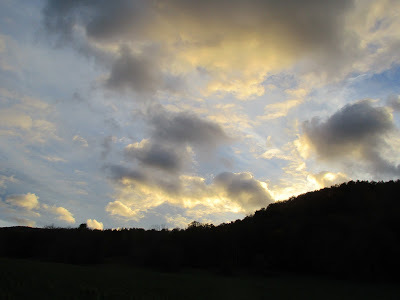 Only the sudden amber light finds its way,a silence-seeking searchlight. through this paradise of silenceand three pairs of scurrying feet.
Only the sudden amber light finds its way,a silence-seeking searchlight. through this paradise of silenceand three pairs of scurrying feet.4. Aspinwall Hotel
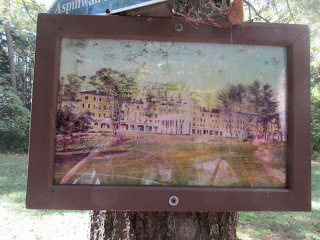 Only the portrait remains of the grand hotel situated up high on a once-cleared site in a once-desired location for those leaving urban addresses for fresh air, rural outlooks, idle days. People change, extending their sense of place with the help of distance-conquering machines. The trees vote for change as well and summon their ally, fire, to clear the ground once more for a new way of life.
Only the portrait remains of the grand hotel situated up high on a once-cleared site in a once-desired location for those leaving urban addresses for fresh air, rural outlooks, idle days. People change, extending their sense of place with the help of distance-conquering machines. The trees vote for change as well and summon their ally, fire, to clear the ground once more for a new way of life.
Published on October 20, 2018 21:49
October 13, 2018
The Garden of the Seasons: Cleaning Up Our Point of View -- Sky, Land, and We Four in the Berkshires


We cleaned up the Berkshires. Not the mountains, of course, which are cleaner than anything human beings get their hands on. And not the County of Berkshire (Massachusetts' comely west end), which gets along well without help or interference from visitors and summer types, who last as long as their cottages stay warm and the water still runs. That day of reckoning, by the way, is hard upon us.
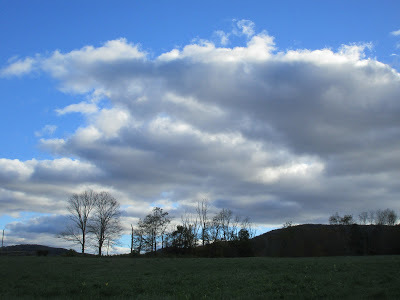 No, I mean our own perspective on life in this autumn wonderland. Since windows are so essential, especially as plummeting temps continue to reduce our time spent outdoors staring at the scenery, we’ve put some hours, money and elbow grease into lightening the view.
No, I mean our own perspective on life in this autumn wonderland. Since windows are so essential, especially as plummeting temps continue to reduce our time spent outdoors staring at the scenery, we’ve put some hours, money and elbow grease into lightening the view.
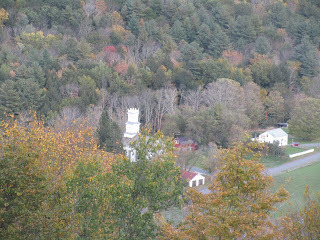 Windows are the eyes of our reading, thinking, eating, talking hours. Since we look at them so much, somebody was bound to notice that the frames needed a serious brightening up. Paint chips were brought to the hardware store.
Windows are the eyes of our reading, thinking, eating, talking hours. Since we look at them so much, somebody was bound to notice that the frames needed a serious brightening up. Paint chips were brought to the hardware store.
 Paint was mixed. Brushes and sandpaper acquired. Along with (note photo) gobs of blue tape. This was scientifically applied according to some geomancer’s notion of the perfect form of the rectangle. A thick white liquid was scientifically applied. Artists contemplated their work (same photo). Darkness fell. It was hanging around all day, and eventually it arrived. Nothing we did could hold it back. The moon rose. (See photo)
Paint was mixed. Brushes and sandpaper acquired. Along with (note photo) gobs of blue tape. This was scientifically applied according to some geomancer’s notion of the perfect form of the rectangle. A thick white liquid was scientifically applied. Artists contemplated their work (same photo). Darkness fell. It was hanging around all day, and eventually it arrived. Nothing we did could hold it back. The moon rose. (See photo)
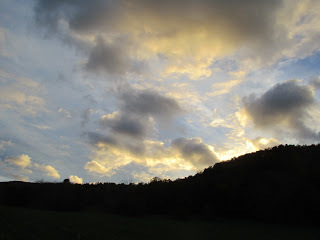
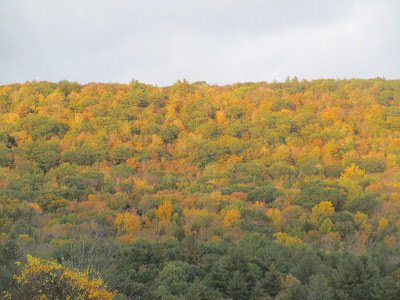 Next day Saul and I visited Tyringham Cobble and found what we wanted, pretty much what everyone wants. Dramatic skies (see photos), bright and various foliage (photo), an enormous rock with the profile of a rabbit (photo of rock with holes), a summit from which to contemplate the idea of immortality in the lasting presence of a village cemetery (ditto), more clouds (more photos).
Next day Saul and I visited Tyringham Cobble and found what we wanted, pretty much what everyone wants. Dramatic skies (see photos), bright and various foliage (photo), an enormous rock with the profile of a rabbit (photo of rock with holes), a summit from which to contemplate the idea of immortality in the lasting presence of a village cemetery (ditto), more clouds (more photos). 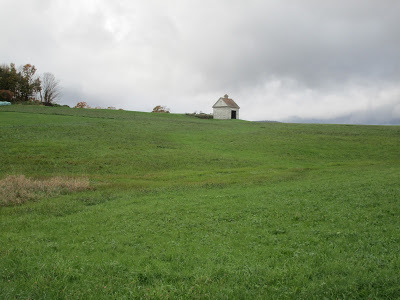 The following day promptly after breakfast, around noon, we walked down a scenic road as clouds rolled once more, leaves turned, and cute little dogs tried to jump on me, but missed.
The following day promptly after breakfast, around noon, we walked down a scenic road as clouds rolled once more, leaves turned, and cute little dogs tried to jump on me, but missed.
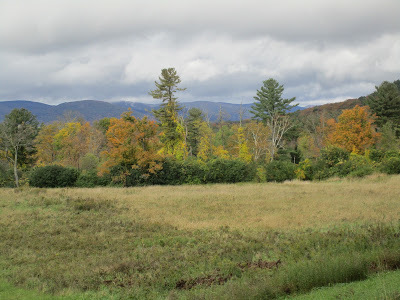 These were some of our adventures. Now the time is drawing near to make like the final images at the end of the “Rocky and Bullwinkle” cartoons, bring out the brooms and clean the place up. Back next year.
These were some of our adventures. Now the time is drawing near to make like the final images at the end of the “Rocky and Bullwinkle” cartoons, bring out the brooms and clean the place up. Back next year.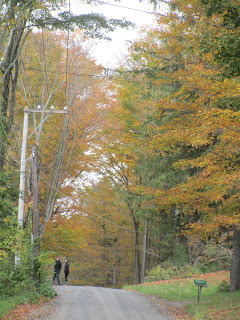

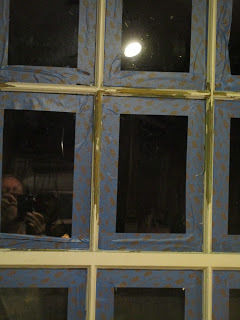
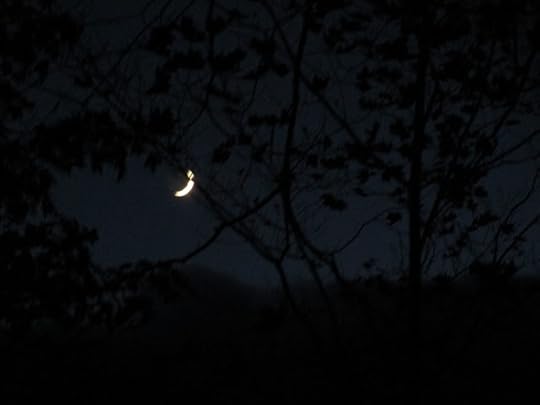
Published on October 13, 2018 14:41
October 11, 2018
The Garden of the Tale: Under the Rule of Pig, a City Suffers 'The Shamings'
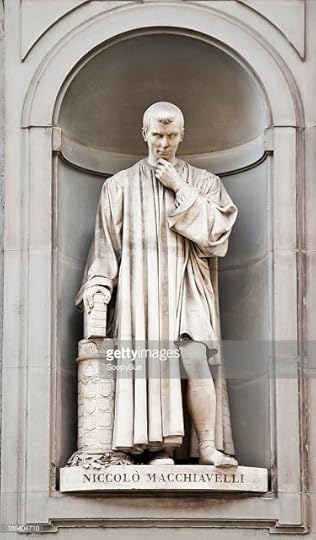 Stay with me, people, as the mood grows darker still. Two new segments this week in my serial novel, "The Country/The Country."
Stay with me, people, as the mood grows darker still. Two new segments this week in my serial novel, "The Country/The Country." After Pig abruptly takes over the city of Monro and establishes rule by fear, everyman Keel braves a gathering of Pigglies in the hidden basement bunker of the house of his enemy. Surprise! -- Pig is expecting him. He fires a few provocative questions, to find out what this strange little man is made of, and they debate the classic question of whether it is better for a ruler to be loved or feared. Does Keel pass the test? More importantly, does he do what opposition guru Mrs. Nathan wants him to do? Make Pig notice him. Make a connection; however momentary.... Chapters 25-27 in "The Country/The Country." https://www.inkitt.com/stories/thriller/226757/chapters/25
From chapter 27, "It's an Honor": "So you're Keel, right?" The booming voice of the network-addled rallies scaled itself to basement-bunker dimension. "The phil-os-o-pher."
He wanted to deny it; shake his head. He shrugged instead. Besides, this was his job. His part to play: make him look at you. That appeared to be happening without much effort on his part. "So. What do you think of Mac-Veely?" Pegasso's voice beckoned with a sort of punishing charm. Not the chanting, stump-thumper's voice of the choreographed rallies, those thinly veiled war-games. Keel forced himself to look at the candidate. His features not handsome, but strong. His Adam's apple prominent. His chin narrowly cleft; why, Keel concluded, he was photographed always from a profile dominated by the strong nose. In person he appeared larger, wider, than even the big-shouldered protectors who lurked behind Keel with their hands at their sides. "Well?" A voice like a blade. "Excuse me." Keel searched for present-mindedness. "You asked about Mac-Veely?" "You're this Keel we've been hearing about, right? This man who knows all the old books." Hearing of? How? "Yes." What more could he say? "I'm Keel." "And I am Pegasso. So let's go, Keel. Let me hear from you."
In a city under the rule of Pig, the Pegasso Campaign takes what it wants. It runs up debts it has no intention of paying. Steals a car. Kidnaps a girl. In a campaign of humiliation of its opponents, Pig's soldiers demonstrate control by public ‘shamings’ of members of the 'leets' through brutal displays of pain and intimidation, turning ordinary citizens into collaborators. Keel finds two large men at his door. Come with me, they say. Is he about to be shamed. Instead they take him to another encounter with Mr. Pig himself, this time in an empty City Hall (or 'City Hell,' as Keel thinks of it). It concludes on an ominous note, as Keel finds himself a prisoner. Chapters 28-30. https://www.inkitt.com/stories/thriller/226757/chapters/28
Please share these links on social media.
If you're just hopping on, here's a brief synopsis of the plot set-up of "The Country/The Country." The novel's principal character, who goes by the single name of Keel, is a former college teacher pressed into early retirement by the declining interest in his academic specialty, classical philosophy. The chief antagonist is the wealthy businessman Karol Pegasso, who heads the international cartel Animal Firm and whose political theories involve more frankly brutal tactics than even those currently on display in American politics. After a long period of peace and moderate prosperity in The Commonhope of UZ (a fictional country with resemblances to our own), fears of economic stagnation and social change are driving the candidacy of a new kind of leader. Called "Pig" by his supporters, who pack angry rallies to show their eagerness for vague, sweeping concentrations of power, Pegasso dominates the early rounds of his country's complicated election system and appears a near certainty to be the county's new chief executive. But when citizen Keel discovers the graffiti "Kill Mr. Pig" in his own neighborhood in the middling city of Monro, the desperate call of a potentially violent opposition both frightens him and arouses a deep patriotic urge to make a difference. Chance, or something else, brings him into conflict with local Pig supporters, and into psychic connection with an old woman of unusual powers (Mrs. Nathan). He also encounters a network of mysterious "watchers" monitoring the activities of the Pig campaign in Monro and a local dog officer who has ties to both Pig supporters and opponents. And when Keel travels to the backwoods hideout of Mrs. Nathan, he is told to be ready to play his part in stopping Pig's momentum.
Published on October 11, 2018 11:03
October 4, 2018
Garden of Verse: A Change in the Air in Verse-Virtual's October Poems
 Maybe it's just the end of the warm season in the northern hemisphere, the end of the growing season for summer gardeners -- the end of the beach season, vacation season, and boating season -- but there's a tinge of melancholy in the air. Of course there's everything else going on in the world, as well -- but I'm not going into any of that (now). Let's stick to the universal questions. Like for instance, the meaning of "a horseradish layer cake." That's the image brilliantly concocted by poet Robert Wexelblatt in his poem "The Comedian," which begins this way:
Maybe it's just the end of the warm season in the northern hemisphere, the end of the growing season for summer gardeners -- the end of the beach season, vacation season, and boating season -- but there's a tinge of melancholy in the air. Of course there's everything else going on in the world, as well -- but I'm not going into any of that (now). Let's stick to the universal questions. Like for instance, the meaning of "a horseradish layer cake." That's the image brilliantly concocted by poet Robert Wexelblatt in his poem "The Comedian," which begins this way:Imagine, he said, a horseradish layer cake.
It took some time to conjure that up, then
a little more to get the point, nearly.
We guessed he meant you can make something
sweet out of what’s bitter, or that looks sweet,
or that the best jokes tend to bite back.
I love the notion of that last line -- "the best jokes tend to bite back." There's a whole theory of humor in that idea. You can read the rest of poem in the October issue of Verse-Virtual, the online journal that publishes a new issue every month. http://www.verse-virtual.com/poems-and-articles.html Wexelblatt's second poem in this issue, "Trois Adieux," bites in many directions. It offers a major seminar in analyzing the vernacular, a lesson book in 'how we speak today' -- especially in emotionally loaded contexts. Three stanzas analyze the meaning of three common expressions: "I'll see you later." "I can't do this any more," and, "This isn't easy For Me." The poem raises questions such as these, looking deeply into the second of these expressions:
And what, one is
left to wonder, is this? Such a duplicitous
accordion of a pronoun, this.
To top it off each stanza ends with a brilliant rhyme. This is a killer of a poem. Melancholy isn't the first word I'd associate with Donna Hilbert's poem "Teaching the Fish to Let Go," a poem that begins with a depiction of a fisherman casting flies. It's a relaxing idea, but life doesn't simply do one thing at a time. "Susan calls," the poem tells us, "we talk/ about death." We learn more about Susan's connection to this topic in the next few intensely packed lines, including a visit to the hospital that ends with his diagnosis: "you didn't swallow enough."
Then we come back to the fisherman, who's had a strike, and are treated to an unexpected and perfect hook-up between these two very different themes.
A different sort of melancholy, the kind of emotion that used to be called "pleasing" and was associated with 19th century poets, is called to mind by Marilyn Taylor's "Crickets: a Late Chorale." That late season chorale is a favorite end-of-summer sensation for me and, I expect, many of us. Every summer when we first hear the crickets get up on their hind legs and sing, it's a telling seasonal announcement, like the crocuses opening in spring or the first flakes of winter. Except rather than beginning, it's a sign of the ripening climax of another summer -- and summer, for many of us, is a epitomizes much of what we love about life.
Taylor's poem is a rhetorical whole in five metered stanzas. We have elegantly descriptive stanzas on the cricket's annual performance, followed by analysis of our response:
Repetitive cacophony
becomes the leitmotif—
they know their time to reproduce
is growing brief. And we who listen will do one
of several likely things:
deny the deviousness of time,
or fold our wings Please read these poems in full, and all the others, at verse-versual.com. Here's the link http://www.verse-virtual.com/poems-and-articles.html
Published on October 04, 2018 12:07
October 2, 2018
The Garden of the Tale: In This Week's Installment of 'The Country/The Country': 'Vikings of the Road'
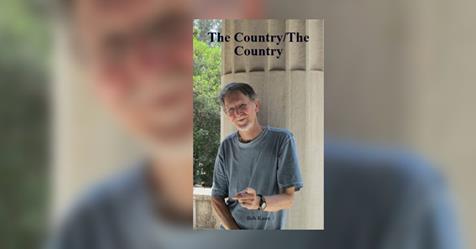
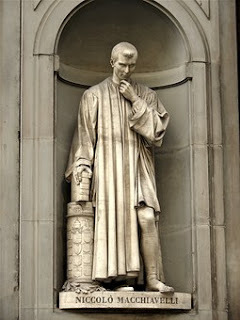 In the segment of "The Country/The Country," my political thriller set in a fictional country resembling our own, I posted today, events move to a crisis in the small city of Monro, where Voting Day is about to take place. Keel, the novel's principal character, a retired teacher living a largely self-contained existence, has learned that the Leading Candidate in his country's election of a new leader -- a loud-mouthed, rabble-rousing businessman called 'Pig'-- is bringing his frenzied campaign to Keel's city of Monro. In chapters 22 to 24, (here's the link:
In the segment of "The Country/The Country," my political thriller set in a fictional country resembling our own, I posted today, events move to a crisis in the small city of Monro, where Voting Day is about to take place. Keel, the novel's principal character, a retired teacher living a largely self-contained existence, has learned that the Leading Candidate in his country's election of a new leader -- a loud-mouthed, rabble-rousing businessman called 'Pig'-- is bringing his frenzied campaign to Keel's city of Monro. In chapters 22 to 24, (here's the link:https://www.inkitt.com/stories/thriller/226757/chapters/22
Keel comes face-to-face with the campaign's violent, bullying tendencies, as ordinary citizens cower in their homes. Somehow the nastier details of the Pig gang's takeover of the small cities on the campaign trail never seem to make into the popular news media: cars stolen, drunken parties, confiscations of booze, food and firearms. Plus some short-term disappearances among the female population. To add to his s own anxiety, the opposition has chosen Keel to confront Pig in person. Here's an excerpt from Chapter 24, "Vikings of the Road." The Pigglies who traveled with the leading candidate called themselves "Road-Kings." Some special in-group faction of these christened themselves "V-8 Kings," a motorhead term that sounded to Keel like Vee-Kings, raising echoes of an ancient, perhaps legendary wave of invaders called Vikings. So in Keel's thoughts they became Vikings of the Road.
However named, or nameless, they arrived in force, overwhelmed their opponents, ferreted out opposition leaders, especially those critical of Pig, and hung them in effigy from lampposts. Sometimes, if the opposition did not cave and cower immediately, but stimulated the deeper foul and feral instincts of the attackers, they hung women too, letting their colorfully draped bodies swing in the air as warnings to the locals and stimulants to the sadism of their own followers. A subterranean current of angry rapacity they could tap as needed. If they turned it on, it would flow. In his own dream-haunted consciousness he saw the engines left to roar even after the vanguard arrived and secured the Capitol Zone, pulling their machines up onto the grass and staking them on the broad lawns. Tents would be planted there soon and on other nearby green spaces, the few square blocks of city commons where an occasional monument served as a tent pole. He saw more; day-dreamed more deeply. He could not turn away. The newcomers surged over the landscape, set fires to warm themselves, broke out their canteens and flasks, smashed a few windows when they found doors locked against them, rousted out a mayor's aide and a handful of councilors from City Hall to serve as guides and local reference sources (the mayor himself, a secret Pig ally, having been tipped off and allowed to flee to the city's sub-lands), then began to tamp down some of the engine-roar so long as the local populace remained suitably cowed. After which they began looking for stuff. Drink and provisions came first, of course. Then girls, a little later. The nearby markets were quickly looted. Employees fled at the sight of the approaching Pigglies, their beards, their bellies, and their girth; and their flesh marked with arcane symbologies... He recalled momentarily the opposing symbols of guerilla graffiti artists; the comparatively harmless 'Kevvens.' ...
Now he kept off the main roadways, hearing from these wider spaces the aching sound of car alarms, loudspeakers, and the screeching of brakes typically followed by the deeper bang of collision, but on this occasion simply by louder sirens. He did not walk toward these noises. He followed the residential streets that looked as if the sirens had done their clearing work, for now nobody was venturing out of doors, even to stand on a porch and crane a neck at the sky. Block after empty block. Angry noises in the distance, no one on the sidewalk or the streets. The occasional vehicle pawing slowly up to intersection to take a fearful peek before making a turn. Its driver rigid and anonymous behind the wheel. The corner shop closed, locked down for the night hours before nightfall. Dog owners bade their pets to stay inside and hold it. The cats were in closets, whining. By the time he came within blocks of the Capitol Zone -- the distance of a long shout in the street that no one would hear -- the compounding of sirens and amplified PA noise rose to a volume beyond which ordinary conversation could not be attempted. Keel imagined pointing to his ears and shaking his head if anyone else manifested on the street, but no one did. Faces appeared at the upper windows of the four and five story apartment blocks, looking dumbstruck, dazed. Beyond the last brick building, the view opened and he spied a few scurrying figures, walking hurriedly away from the center, their bodies hunched forward as if lowering the head to protect the ears. They did not look at Keel or anyone else, but hurried past. Homeward, he supposed -- or hoped. Unless their homes had already proved unviable, commandeered by the intruders or rendered unbearable by the constant noise or foul exhausted air, and they were now hastening to some more distant sanctuary. Fugitives from the party: hands shoved deep into pockets, features raw, red-eyed, perhaps from passing through smoky patches. Keel thought about trying to stop someone, forcibly, to demand an account. What's going on? What are you afraid of? But it would be like trying to lay hands on a tempest. Then smoke reached his senses, flowed thickly in streams, borne by the wind. He ducked into a narrow alley, a final sanctuary between cramped buildings, and studied the prospect of Capitol Plaza between volleys of smoke. He saw the bonfires, wood fires sprinkled with trash, burning on the Plaza lawn and others spread across the old town green like pustules from a raving fever. He saw the brightly colored tents, planted here and there where the green space allowed. He saw what he took to be dummies, effigies, hanging from the lamp posts. Some clad in what looked like business suits. He heard the loud pulsing sounds of what he supposed was meant to be music. What did they call it -- Crash Music? Train Wreck? Dead Mental? A small knot of men, suited but not wearing overcoats, huddled on the stone portico outside the main entrance to the District Capitol building, the old stone heart of the Capitol Zone. Its carved columns gave little protection from the elements, the stiff late-winter wind, whiffs of smoke blown by a cross-breeze into their faces. One of the men, gray-headed (possibly a mayor's aide, Keel thought) began to cough. The noise grew, as if amplified by open space. He did not know what he would do if anyone approached him, but no one did. He left the alley and walked slowly toward the smoky fires, a jumble of waste wood and garbage at their base, dismembered chairs dispersed among them. Toward the human figures dispersed across the lawns, some edging in or out of tents: the central one of these a big circular, party-looking big-show shelter; the others triangular, monochrome, with tent-pole spines and a revivalist aspect. People gathered, unhurried, looking at home here unlike the fugitives hurrying way. They wore big-shouldered jackets, sports caps, belts with chains; men and women dressed alike. Figures merged, broke away, threw their heads back and laughed, lifted cans or bottles to their mouths. Some strode purposefully away from the plaza lawn to the town green on the other side of a rectangular big-shot parking area, the green's civic monuments now draped with the tent cloths and plastic layers of improvised shelter. Others strode from the green back toward the plaza, pausing to slap hands or greet others, shouting 'hallo!s' to acquaintances. The carnival air of these ambulatory figures contrasted so strongly from the cowed, fugitive aspect of those escaping the city center -- and (he noticed) the huddle of anxious figures planted outside the city hall entrance -- that Keel struggled to understand what he was seeing in this transfiguration of a once familiar setting; to assimilate these new impressions. Festival? Or conquest? It took him a moment to convince himself that the people he was now critically regarding were the campaign followers of one Karol Pegasso... The Pigglies. Creatures of his dreams, nightmares... Their dreamlike aspect changed as a pair drew closer. Noticed him, exchanged a glance, turned his way. Large men, two of them.
For more see:
https://www.inkitt.com/stories/thriller/226757/chapters/22
"Second-act crisis" implies there's much more to come. There is. I will be posting new segments of my serial novel twice a week from now through the November election.
Published on October 02, 2018 20:53



